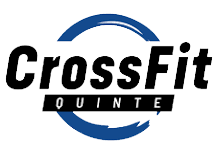NUTRITION THE FIRST PILLAR TO OPTIMIZE PERFORMANCE AND RECOVERY
CrossFit has transformed the fitness industry through its intense workouts and emphasis on community. However, it’s essential to recognize the vital role nutrition plays in enhancing member performance and recovery.
While CrossFit exercises are challenging, demanding strength, endurance, and agility, athletes need to nourish their bodies with the correct nutrients before, during, and after training to excel. Here are the essential nutritional aspects for CrossFit athletes.
Nutrition in CrossFit
Processed and refined carbohydrates, such as those present in sugary snacks, white bread, and soda, play a key role in the onset of chronic illnesses. These foods are rapidly digested, leading to spikes in blood sugar levels. This can result in increased insulin resistance over time, a condition where cells become less sensitive to insulin signals, which can contribute to the development of type 2 diabetes.
Moreover, consuming excessive amounts of processed and refined carbohydrates has been associated with obesity, heart disease, and certain types of cancer. Choosing whole, unprocessed carbohydrates like fruits, vegetables, and whole grains can help reduce the risk of chronic diseases and enhance overall health and well-being.
Health Biometrics
Various health indicators, including blood pressure, cholesterol levels, and body mass index (BMI), offer valuable insights into overall well-being and can help detect potential risks for chronic conditions like heart disease, diabetes, and hypertension. Regularly monitoring these markers enables easier tracking of changes over time and facilitates making informed choices that enhance health.
For instance, individuals with consistently elevated blood pressure can be encouraged to make lifestyle adjustments such as increasing physical activity, reducing stress, or changing their diet. Similarly, keeping track of cholesterol levels can guide individuals in adopting healthier eating habits and regular exercise to decrease their risk of heart disease. Ultimately, comprehending and managing personal health indicators empowers individuals to take proactive measures towards a healthier, more fulfilling life.
Nutritious Foods
Quality foods are essential for nourishing the body, enhancing performance, and fostering well-being. These foods are minimally processed, packed with essential nutrients, vitamins, minerals, and antioxidants, and provide lasting energy for intense workouts.
Key components of quality foods include lean proteins such as chicken, turkey, fish, lean beef and eggs, which aid in muscle repair and growth.
Complex carbohydrates like fruits, vegetables, and whole grains offer a reliable energy source for sustained performance.
Incorporating healthy fats from avocados, nuts, seeds, and olive oil is vital for hormone production, brain function, and overall health.
We encourage individuals to prioritize quality foods to optimize their performance at the CrossFit gym, aid in recovery, and boost their overall health and fitness levels.
Quantity
Regulating portion sizes and the total food intake to meet individual energy requirements while supporting specific fitness objectives is crucial. It entails harmonizing calorie consumption with energy expenditure to reach and sustain a healthy weight and adequately fuel workouts.
Tracking macronutrients such as carbohydrates, proteins, and fats through apps or food journals is one way to monitor intake. Another approach is portion management, utilizing visual cues like the size of one’s palm or fist to determine the appropriate serving size. Moreover, being mindful of hunger and satiety signals can prevent overeating and encourage mindful eating practices.
Lastly, monitoring changes in body weight and composition over time can offer valuable insights into whether one’s current food intake aligns with their objectives.
Establishing Positive Eating Patterns
Habits are key to successful nutrition and achieving health and fitness goals, particularly in a CrossFit setting. Habits are routine behaviors that shape our daily choices and actions without conscious effort. Cultivating healthy habits in nutrition is essential for providing the body with proper fuel, enhancing workout performance, and attaining long-term success. Through meal planning, portion control, and mindful eating, members can lay a strong foundation for nutritious eating that becomes second nature. Consistently opting for quality foods, managing portions, and being attentive to hunger cues can boost energy levels and overall well-being. Sustaining progress and healthy lifestyle changes relies on ingraining positive habits that support ongoing success and dietary adherence. By focusing on building good habits, individuals can take charge of their nutrition and reach their goals within the CrossFit gym and beyond. Different restrictive diets like keto, paleo, or vegan have unique guidelines emphasizing the importance of quality and quantity.
Quality refers to the nutritional value of food, while quantity pertains to portion sizes and overall intake. Adapting the balance of quality and quantity to fit specific dietary restrictions optimizes nutrition in line with individual preferences and objectives.
In summary, optimal nutrition plays a crucial role in enhancing performance and recovery. Providing the body with the necessary nutrients before, during, and after exercise can help boost energy levels, promote muscle growth and repair, and improve overall athletic performance.
Inspiration provided by Rick Preisinger CrossFit Quinte.
99 Dufferin Ave, Trenton, ON




Quick Links
Contact Info
99 Dufferin Avenue, Trenton, Ontario K8V 5E2, Canada
Hours
Mon - Fri
6-9 am, 12-1 pm, 4-7pm
Saturday
9-11 am


